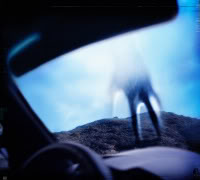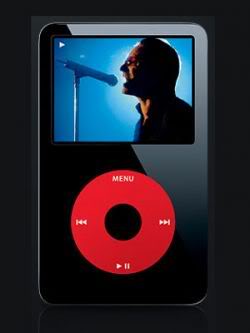BY MIKEY MIGO

In the 1900's music marketing has been fairly simple and only a few routes were taken. In many cases it's as simple as: first single, first video, touring, and then it's repeated depending on the success of the album they're pushing. Toss in some interviews with press, magazine and television advertisements, and the normal stuff you still see everywhere today. In a viral marketing world, musicians are expanding as artists, so is the promotion for their work.
Before I jump right in, I want to make sure everyone knows I'm not cheapening the great ideas and art that these people have done. "Marketing" is basically just creative promotion in order to create a buzz about ones self or one's product. That's not anything dirty or disrespectful, it's just who we are as consumers and suppliers.
RADIOHEAD LETS YOU PAY WHAT YOU WANT.

This past month Radiohead has embarked in a new form of providing music to their fans and a fresh new idea to generate marketing buzz. On October 10th, they released their seventh studio album, "In Rainbows" on their website for fans to purchase. Okay, so that's not so revolutionary, but what is unique is that they're allowing their fans to pay what they want for the album. Basically, they're relying on their reputation and music to sell their albums instead of the normal marketing blitz. Yet, this whole thing has generated a lot of buzz. They are already wealthy men so giving it away isn't that big of a deal for the most part. It's common sense in the industry that a band makes more money touring than through record sales. But their record sales won't be hurt that much. Like a Tool, Nine Inch Nails, or Pearl Jam, they have a die hard fan base who will buy everything they release and get them to Number 1 on the Billboard charts for at least one week. And let's not forget they're releasing a deluxe edition of the album with fancy packaging for $80 soon! So, if we take into consideration the majority of new releases are $10, each one of the diehards is buying EIGHT albums to make up for anyone who decided not to pay anything for the digital download. So basically what I see this as is a huge middle finger to the record label, while not losing any money or indie cred.
KANYE WEST vs. 50 CENT: THE RELEASE WAR.

On September 11th, 2007 the Billboard charts had a lot more attention than normal. It all started a while before that date when 50 Cent declared that he'd retire from music if Kayne West sold more albums than he the opening week of their respected albums sales. Then the battle of words grew leaps and bounds. The internet, radio, television, and everyone was talking about the Release War. In a post Biggie vs. Pac war, there were no guns drawn or anything violent. It was purely a rivalry with each hyping their music as if it were a local high school's pep rally. They both sold a shit load of albums and got people to actually go out and buy a disc rather than steal it off line (which, many still did). Even my local rock station, Chicago's Q101 got on board and helped push Kanye's album and "Stronger" single to a not-so-common market. Not to get all preachy, but I knew Kanye would win. He has more to say, more talent, and his music is more accessible to more people. I'm just not a fan of thug rap. Now we look back and know that Kanye won and that 50 isn't retiring, but it was still all in good fun.
TRENT REZNOR'S YEAR ZERO EXTRAVAGANZA.

Months before the April 2007 release of Nine Inch Nails' "Year Zero" album, clues started to hit the internet. These clues would later be revealed as part of an alterative reality game in order to coexist with and promote the album. With NIN being my favorite band, I got hooked line and sinker on the whole experience. Trent Reznor basically builds an entire world around the concept album and gave fans an experience that can not be compared to anything else. There were phone numbers to call, websites to visit, clues on merch, and so much more that all tied Reznor's view of the future world together. Fans would lose sleep as they deciphered the clues to help the entire community expand on this great interactive experience. While it wasn't the first ARG, the buzz grew on Trent's interactive marketing concept to the point that it's found in many entertainment mediums now. From movies to now even professional wrestling, giving the fans "something to do" while anticipating a release is a great move. While some venues are using it as a blatant marketing technique, Reznor maintained his creditability, self respect, and artistic vision. That and the fact that he turned marketing into an art form is what separate the "Year Zero" experience from most others.
U2 AND THE IPOD.

U2 has always had a huge impact on music and their marketing collaboration with Apple's iPod would be no different. The first single on "How to Dismantle an Atomic Bomb" ("Vertigo") was heavily featured a widely-aired commercial for the iPod. It didn't stop there, as they also released a special edition U2 iPod as well as an iTunes U2 Box Set. The album ended up debuting at number one on the charts in 32 countries, setting a record for the band. On the surface this would be considered "selling out", but from what we found out at their induction to the Rock and Roll Hall of Fame from Bruce Springstein this was not the case. The band took not one cent from Apple for the commercials. They enjoyed the product and endorsed it as much as they endorsed them. It was a fair trade and U2 didn't officially "sell out". Realistically, it's safe to say their involvement with those iPod ads really were the start of a whole new revolution. Let's not forget that "How to Dismantle an Atomic Bomb" is a kick ass album as well.
What are some of your favorite band's marketing techniques?
What has a band done differently in order to gain your attention?
|











